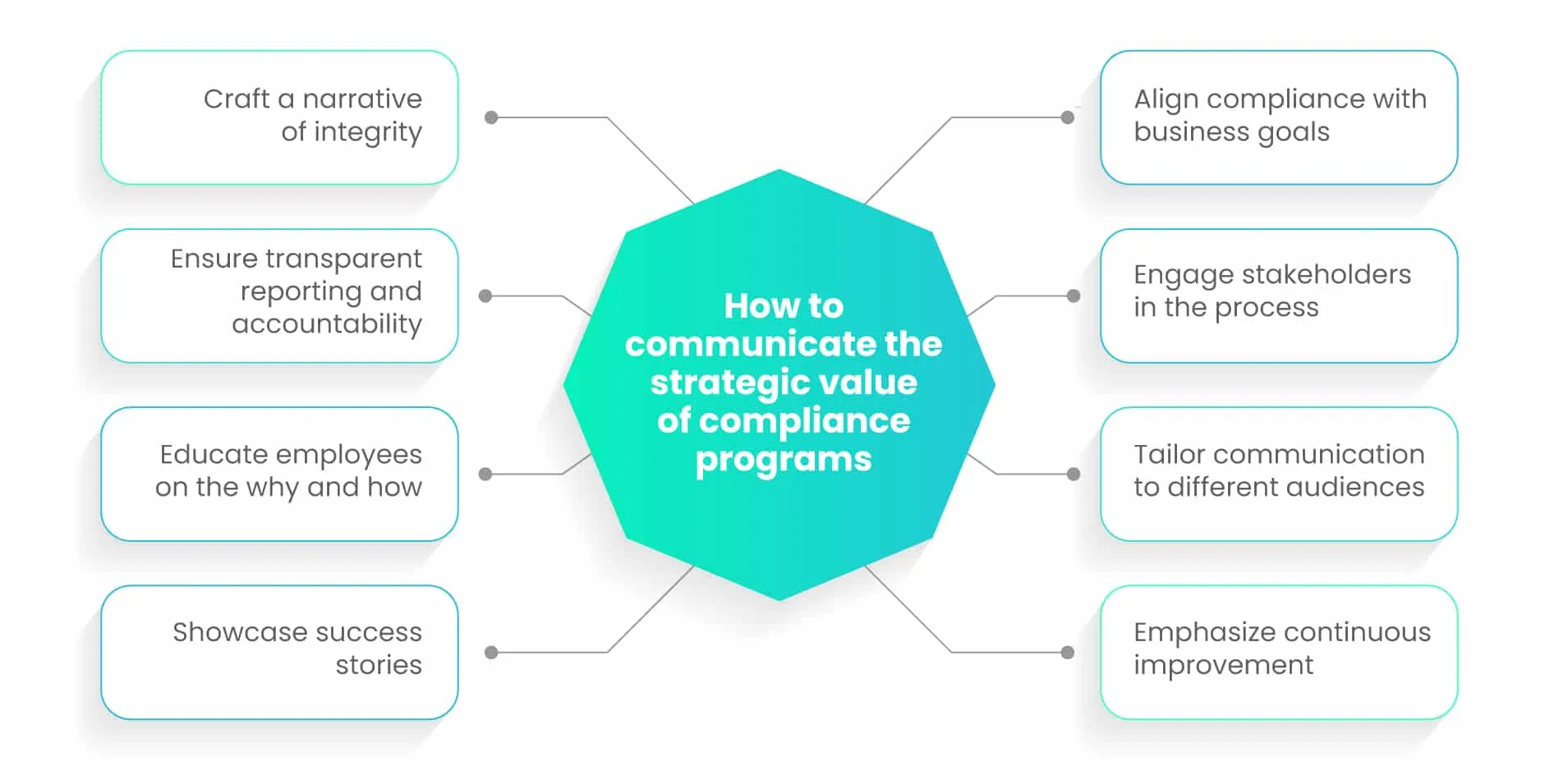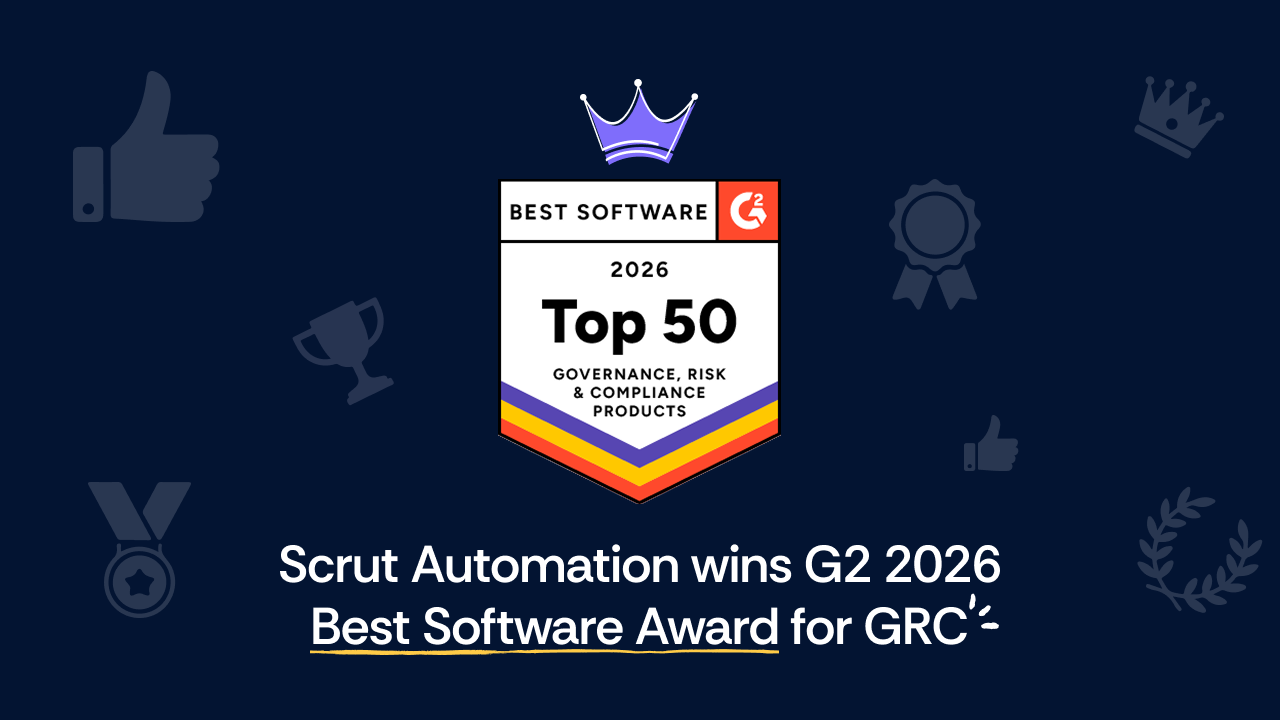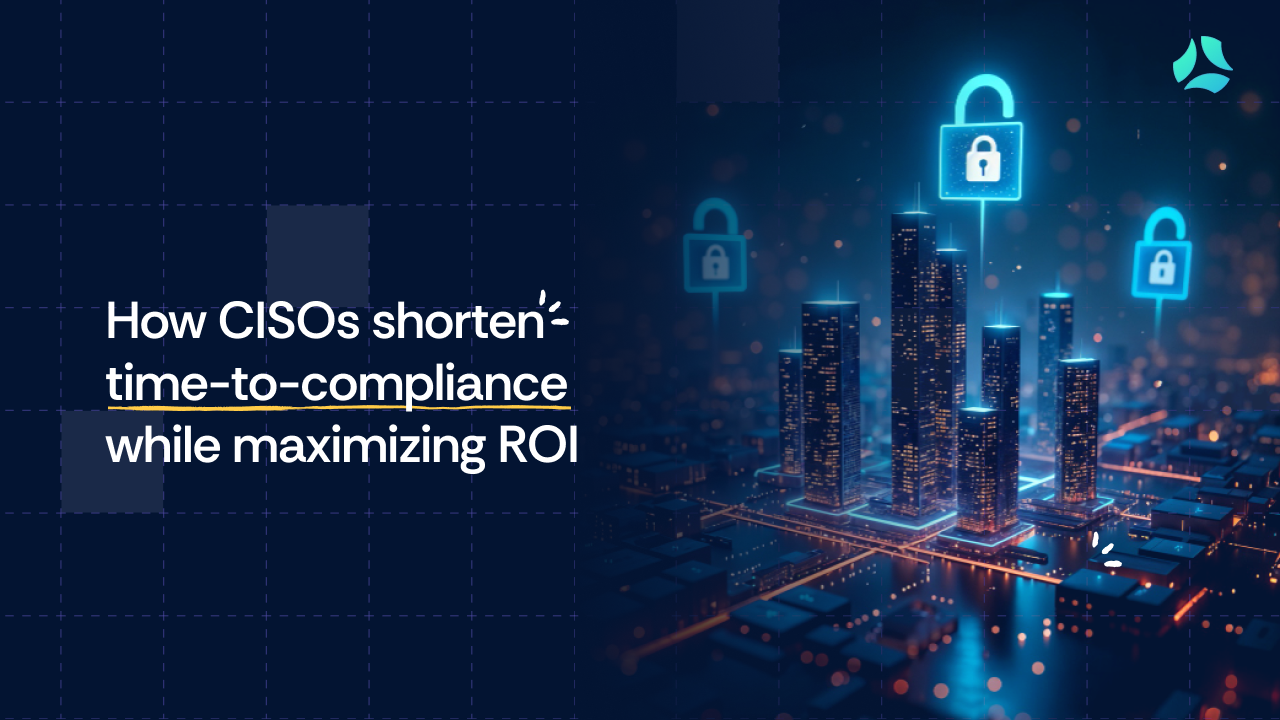Choose risk-first compliance that’s always on, built for you.
Go back to blogs
Articulating the importance of compliance programs
Last updated on
January 22, 2024
8
min. read

In today's dynamic business landscape, the increasing complexities of regulatory environments pose a significant challenge for organizations. Navigating legal requirements, mitigating risks, and building trust with stakeholders have become intricate tasks.
A common problem businesses face is the need to articulate the importance of compliance programs effectively. As organizations grapple with evolving regulations and heightened expectations, a lack of clear communication on the strategic value of compliance programs can lead to potential pitfalls.
One can address this by exploring the fundamental role of compliance and gaining insights into how businesses can communicate and leverage the strategic benefits of robust compliance programs.
Let's delve into the challenges and discover actionable solutions to ensure that compliance becomes an asset rather than a burden for organizations.
The fundamental role of compliance programs
In the complex and ever-evolving landscape of business operations, compliance programs stand as crucial pillars supporting the foundation of organizations.
Why is a compliance program important? At their core, these programs serve a multifaceted role that extends far beyond mere adherence to legal requirements.
The fundamental challenge many businesses face is the failure to recognize the depth of this role and, consequently, the inability to harness the true potential of compliance programs.
1. Legal adherence
Compliance programs form the backbone of a company's commitment to legal adherence. By systematically aligning business operations with local, national, and international regulations, organizations not only meet statutory requirements but also establish a solid framework for ethical business conduct.
This legal foundation becomes the first line of defense against potential legal disputes, safeguarding the business from regulatory penalties and legal consequences.
2. Risk mitigation and structured frameworks
A critical aspect of compliance programs is their integral role in risk mitigation. These programs provide a structured framework for identifying, assessing, and mitigating risks across various facets of the business.
Whether it be financial, operational, or reputational risks, a well-designed compliance program acts as a proactive shield, helping organizations anticipate challenges and navigate through potential pitfalls.
3. Organizational resilience
Beyond immediate risk mitigation, compliance programs contribute significantly to the resilience of an organization. By fostering a culture of adherence to ethical standards and regulatory guidelines, businesses create a robust and sustainable operational environment.
This resilience becomes particularly crucial during times of crisis, allowing organizations to weather storms and emerge stronger on the other side.
4. Strategic imperative for longevity
Recognizing compliance as a strategic imperative is pivotal for the longevity of any business. When viewed not merely as a set of rules but as a fundamental element of the company's strategy, compliance programs become powerful tools for sustainable growth.
This perspective shift enables organizations to proactively address challenges, adapt to changing regulatory landscapes, and align their operations with broader business goals.
5. Building trust and safeguarding reputation
Trust is the bedrock upon which successful business relationships are built. Compliance programs play a pivotal role in establishing and maintaining this trust. When stakeholders—from customers to investors and employees—see a commitment to ethical and legal standards, it creates a positive perception of the organization.
The challenge of connecting compliance efforts with the intangible elements of trust and reputation is met through transparent communication, education, alignment with values, engagement in Corporate Social Responsibility (CSR), proactive issue resolution, and stakeholder collaboration.
6. Structured avenue for transparency and communication
Effective communication is central to building trust. Compliance programs provide a structured avenue for transparent communication about a company's commitment to legal and ethical standards.
By clearly articulating compliance efforts, businesses not only enhance transparency but also demonstrate accountability to stakeholders. This transparent communication builds a narrative of integrity, which is essential for garnering and retaining trust.
For instance, Johnson & Johnson faced a compliance crisis related to product recalls and safety concerns. The company took a transparent and swift approach to communicate the issues, recall affected products, and implement corrective measures. By openly addressing the compliance challenges, Johnson & Johnson not only mitigated potential legal consequences but also demonstrated a commitment to consumer safety and ethical business conduct.
Communicating the strategic value of compliance programs

Communication is central to the success of compliance programs. By understanding the critical role communication plays in fostering a culture of compliance, businesses can effectively convey the significance of these programs to stakeholders and align them with broader business goals.
1. Craft a narrative of integrity
In the complex business landscape, a strong narrative is essential. Organizations should communicate compliance efforts as integral components of their commitment to integrity and ethical business conduct.
By framing compliance as a value rather than a mere requirement, businesses can instill a sense of purpose and responsibility across the organization.
2. Align compliance with business goals
Successful communication involves aligning compliance initiatives with broader business objectives. By illustrating how compliance programs contribute to the achievement of strategic goals, organizations can garner support from leadership and employees alike.
This alignment ensures that compliance is perceived not as a standalone function but as a core element driving overall organizational success.
3. Ensure transparent reporting and accountability
Transparency is a cornerstone of effective communication. Businesses should adopt transparent reporting practices, providing stakeholders with clear insights into compliance activities and outcomes.
Accountability is equally crucial; organizations should openly acknowledge challenges, outline corrective actions, and demonstrate a commitment to continuous improvement in compliance processes.
4. Engage stakeholders in the process
Stakeholder engagement goes beyond reporting. Actively involving stakeholders in the compliance process fosters a sense of ownership and accountability. Regular communication channels, such as feedback sessions, collaborative initiatives, and updates, create an environment where stakeholders feel connected to and supportive of the organization's compliance endeavors.
5. Educate employees on the why and how
Internal communication is fundamental. Employees should understand not only the importance of compliance but also how their actions contribute to the overall compliance culture.
Educational campaigns, workshops, and ongoing communication efforts ensure that employees are well-informed, motivated, and actively participate in maintaining a culture of compliance.
6. Tailor communication to different audiences
Not all stakeholders have the same level of familiarity with compliance matters. Tailoring communication to different audiences, be they regulatory bodies, customers, or employees, ensures that the message resonates effectively.
Customized communication strategies demonstrate an organization's adaptability and commitment to transparency with diverse stakeholders.
7. Showcase success stories
Highlighting success stories is a powerful communication tool. Organizations should share instances where compliance efforts have positively impacted the business, mitigated risks, or contributed to ethical business practices. These stories serve as tangible examples, reinforcing the strategic value of compliance and inspiring confidence among stakeholders.
8. Emphasize continuous improvement
Communication should convey that compliance is a dynamic and evolving process. Emphasizing a commitment to continuous improvement signals to stakeholders that the organization is proactive in adapting to changing regulatory landscapes, technological advancements, and emerging risks. This commitment reinforces the strategic importance of compliance as an ongoing journey rather than a static requirement.
Accelerate your compliance journey with Scrut
Scrut offers an integrated GRC platform, streamlining governance, risk management, and compliance. With Scrut's all-in-one solution, discover and manage cyber assets, establish infosec programs, and monitor controls for 24X7 compliance—all through a single window.
Seamlessly handle multiple audits, collaborate with automated workflows, and simplify task management. Monitor risks in real-time across infrastructure and applications, staying compliant with 20+ frameworks effortlessly.
The platform integrates with 70+ applications, providing intuitive dashboards for data-driven security decisions. Scrut doesn't just offer a tool; its solutions team actively assists with gap and risk remediation, ensuring compliance with multiple frameworks is a streamlined process.
Conclusion: Navigating success through compliance excellence
In the intricate landscape of contemporary business, the significance of compliance programs emerges as a linchpin for sustained success. As we peer into the future, the narrative emphasizes that compliance is dynamic—a force shaping organizational culture, fostering trust, and positioning businesses for enduring success.
Organizations that grasp the nuanced importance of compliance not only meet legal requirements but also cultivate a resilient foundation for innovation, strategic growth, and unwavering stakeholder confidence.
Articulating the importance of compliance is not just a conversation about rules; it's a strategic dialogue about ensuring longevity, reputation, and prosperity in the ever-evolving world of business.
Scrut can help you navigate the world of compliance and articulate the importance of compliance programs. Schedule a demo to learn more.
Frequently Asked Questions
1. Why do businesses need compliance programs?
Compliance programs are essential for businesses to adhere to legal requirements, industry standards, and ethical practices. They mitigate risks, foster trust with stakeholders, and safeguard the organization's reputation.
2. How often should compliance programs be reviewed and updated?
Regular reviews are crucial; ideally, compliance programs should be assessed annually or whenever there are significant regulatory changes. Updates should be made promptly to ensure continued effectiveness and alignment with evolving business needs.
3. What are the potential consequences of neglecting compliance in a business?
Neglecting compliance can lead to legal repercussions, financial penalties, damage to reputation, and loss of customer trust. Non-compliance may result in regulatory investigations and business disruptions, impacting long-term viability.
4. How can small businesses implement effective compliance programs on a limited budget?
Small businesses can prioritize critical compliance areas, leverage technology for cost-effective solutions, and engage in training programs. Collaborating with industry associations and utilizing free or low-cost resources can also enhance compliance without significant financial burdens.
5. What role do emerging technologies play in shaping the future of compliance programs?
Emerging technologies, such as artificial intelligence and blockchain, are revolutionizing compliance. They offer automation, real-time monitoring, and enhanced data security. Integrating these technologies can streamline processes, improve accuracy, and future-proof compliance programs.
Table of contents


















